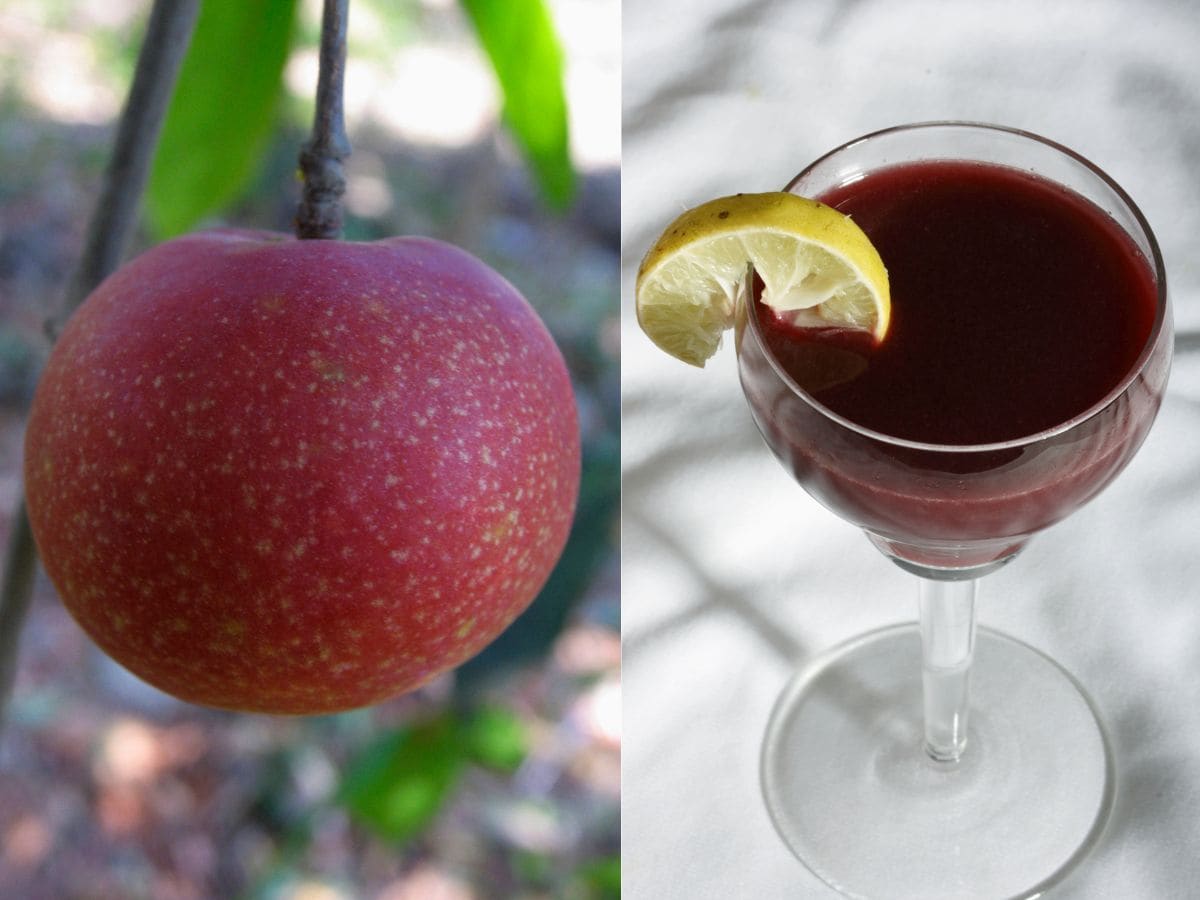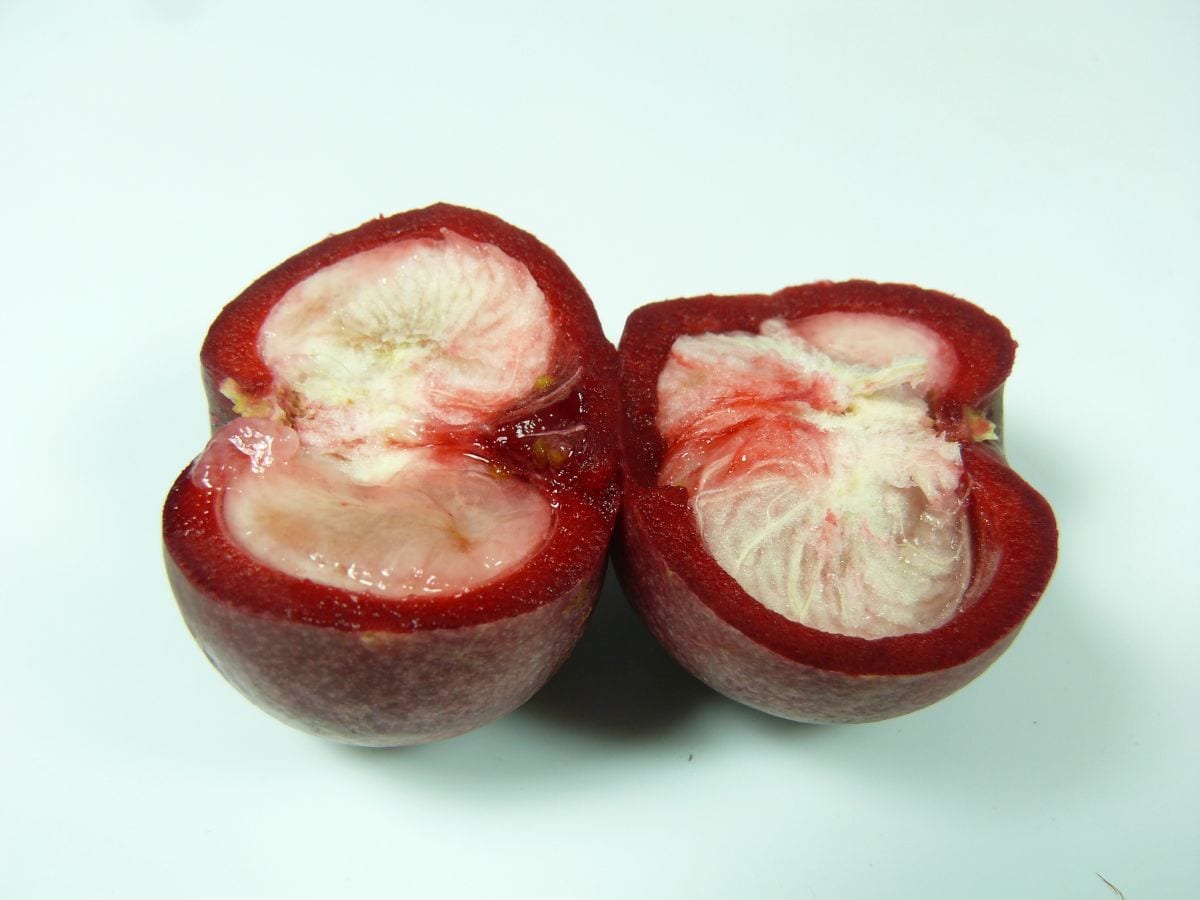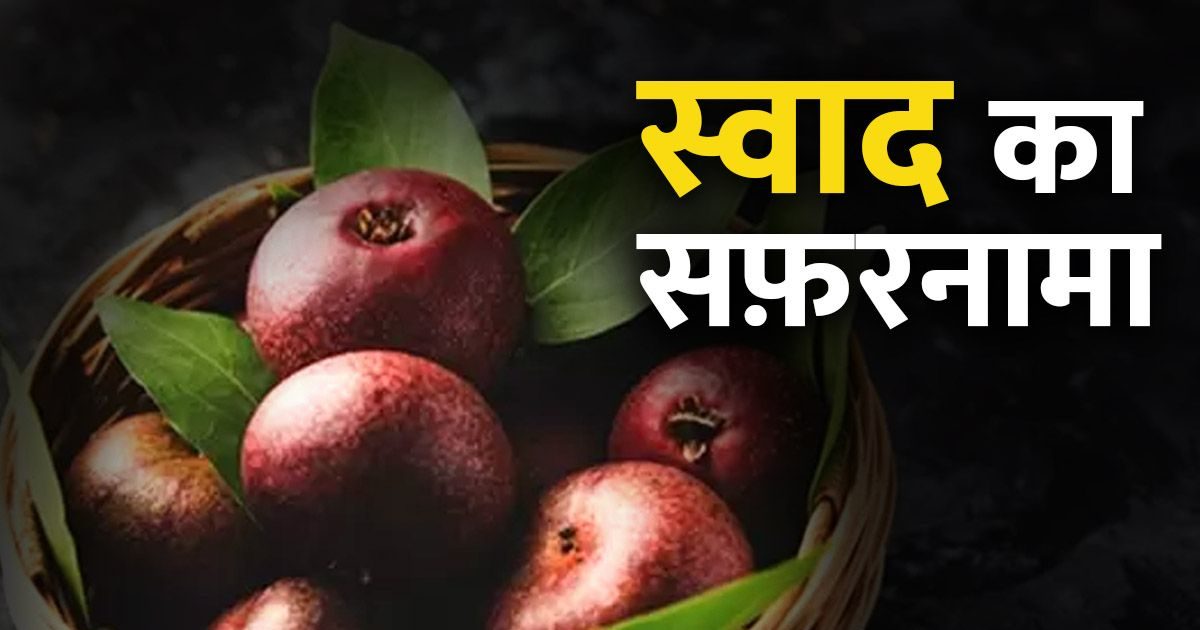[ad_1]
highlights
Kokum is a good digestive and prevents acidity.
Kokum controls borderline diabetic.
Consuming kokum is also beneficial in throat disease.
Swad Ka Safarnama: Kokum is known as a spice in Indian food. This is a special diet of South and West India, which not only adds flavor to food, but also provides nutrition. This is a great alternative to tamarind in a way. Its intake increases appetite, restrains phlegm and vata and also helps prevent constipation, thirst, piles, throat pain. It is considered a herb (medicine) by Indian Ayurveda. Kokum has been used in Indian cuisine and as a herb for thousands of years.
Better in properties than tamarind
First understand what is Kokum? It is the fruit of an evergreen tree. Its fruits are produced in summer, which are small and round. These fruits become red and later dark purple when ripe. The kernels of this fruit are taken out and it is dried. This dry fruit is used as a condiment in various traditional vegetarian and non-vegetarian dishes of South West India. In a way, it is a great alternative to tamarind and is more delicious and full of qualities. It also produces an attractive deep red color in food, as it also has a slight sweetness. Its pungent taste creates stir in the veins.
Fresh juice of its fruit is also prepared and drunk, which provides coolness to the body. Its seeds are also considered nutritious. Its oil is also considered beneficial. Soap, candle, ointment etc. are made from the oil of Kokum seeds. Now even in North India, Kokum is used as a spice. Companies selling food items and other goods will easily deliver it to your home.
from your city (Delhi-NCR)

Coconut keeps borderline diabetic under control and is a summer fruit. image-canva
Read this also: Journey of taste: Mahua communicates ‘strength’ in the body, Ayurveda explains special properties, multi-purpose flowers and fruits
Kokum is an ancient fruit of South-West India.
Kokum is purely a fruit of India and it has been growing for thousands of years in the tropical regions of South and West India. The special thing is that apart from spices, it is also being used as a herb for years. It is described in the ‘Phal Varga’ chapter of ‘Charak Samhita’, the oldest Ayurvedic text of India written in the seventh-eighth century BC. In Sanskrit it is called Vrikshaml. According to the book, it is an acidic fruit and it is hot and dry in effect. It is delicious to eat. Its great specialty is that this fruit has the power to keep away Vata and Kapha diseases.
In his book ‘Spices and Condiments’, Jeevan Singh Pruthi, who has made international recognition in the field of spice technology and the founder director of India’s Agmark Lab, has informed that the Kokum tree grows in the tropical, rain forests of India’s Western Ghats, from Konkan to South India. It is found in Mysore, Coorg and Wayanad. This tree is also grown in the southern districts of Maharashtra. It also thrives on the lower slopes of the Nilgiri hills. It flowers in November-February and fruits ripen in April-May.
Increases appetite, reduces vata-kapha
Kokum is special on the issue of qualities. Talking about its nutrients, 100 grams of kokum contains 60 calories, 14.3 grams of carbohydrates, 1.8 grams of dietary fiber, 0.5 grams of protein and other nutrients. Actually, antioxidants, vitamins and minerals are found in plenty in it, which provide effective benefits to the body. According to the country’s well-known Ayurveda expert Acharya Balkishan, who has done extensive research on Indian herbs, fruits and vegetables, Vrikshamal (Kokum) is a herb. It has been said in Ayurveda that kokum is an appetite enhancer, a cough reducer and a vata reducer. It cures constipation, thirst, piles, sore throat, pain etc. It is beneficial in heart disease. Eliminates stomach worms. It also has the ability to heal wounds. The essence of its pulp thickens the sperm. It also affects the nervous system of the body. It contains anti-oxidant.
Read this also: Journey of taste: Lemon keeps the heart healthy by making the liver strong, helps in weight loss, read interesting history
It is a good digestive, also keeps the mind cool.
According to renowned dietician and Yogacharya Rama Gupta, Kokum has anti-diarrheal properties, due to which consuming it can help in the treatment of diarrhoea. It has both anti-fungal and anti-oxidant properties, which greatly benefit the body. The special thing is that Kokum contains Hydroxy Citric Acid (HCA, skin improver). It not only maintains the glow of the skin, but apart from reducing weight, it also prevents bad cholesterol. It is a good digestive and prevents acidity. Along with this, it also calms the burning sensation of the stomach. Its sweet-sour taste has the ability to keep the mood positive as well. It is believed that if you are feeling sad or want to keep your mind cool then consuming Kokum can do it.

Soap, candle, ointment etc. are made from the oil of Kokum seeds. image-canva
Kokum has also been considered curative in Ayurveda. It can bring relief to any allergic wound, swelling, cracks, cuts and even burns. Kokum is believed to have the ability to reduce even swelling. It also controls borderline diabetics. It is a summer fruit and its sherbet is considered to be the best natural source to prevent dehydration and proneness to heat stroke in summer. It should be used in limited quantity. If eaten in excess, it can spoil the taste of the mouth and cause movement in the stomach. If there is any skin related problem or allergy, then doctor’s advice should be taken before consuming it.
First read breaking news in Hindi News18 Hindi| Read today’s latest news, live news updates, most reliable Hindi news website News18 Hindi.
FIRST PUBLISHED : February 15, 2023, 06:58 IST
[ad_2]
Source link










